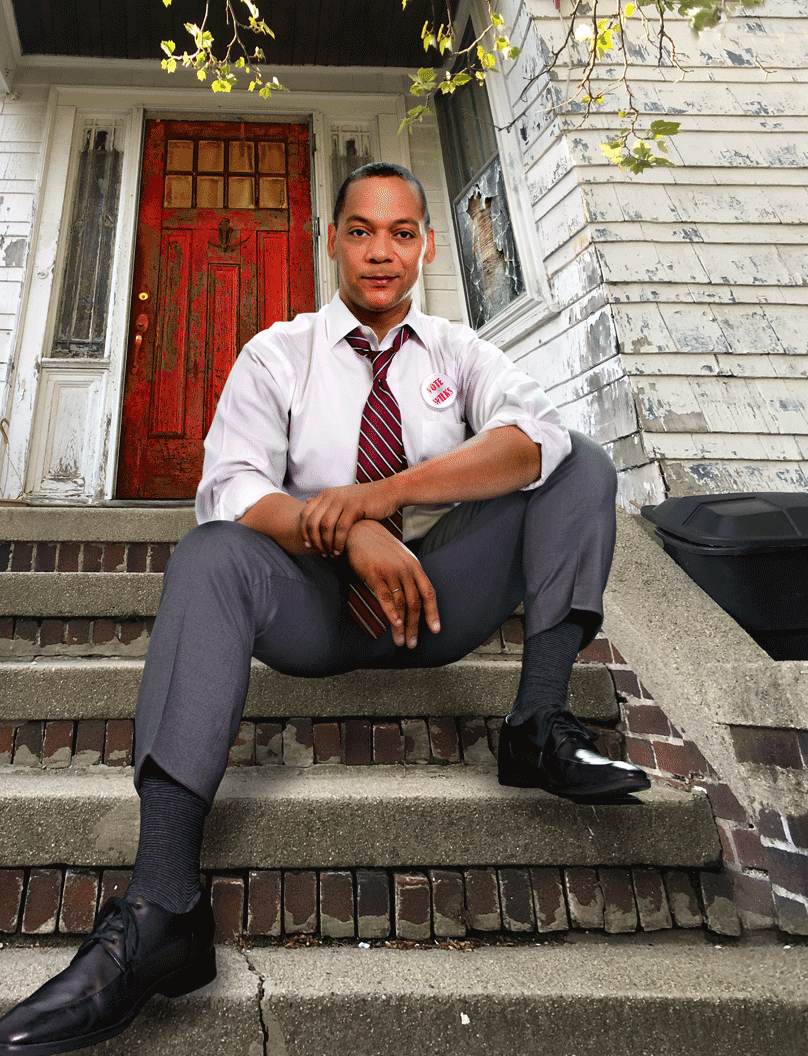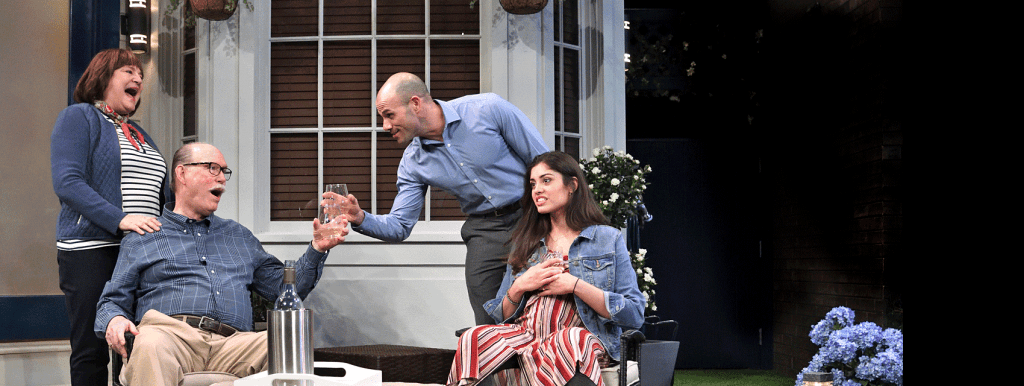Below is a synopsis of the show. You've been warned.
Harmond Wilks is going to change things in this town.
With his wife, Mame at his side, Harmond is hoping to be the first Black mayor in Pittsburg. With his day-job being as a real-estate salesman, Harmond is working on a large redevelopment project in the Hill District. Harmond’s best friend, Roosevelt Hicks, hates his job as a high-up Vice President at a bank, but has invested a lot of time and money into this redevelopment project – and they all agree that this could be an amazing future for the neighborhood – and for the three of them.
Then, there’s a hiccup. Joseph “Old Joe” Sterling is found painting an abandoned house at 1839 Wylie, a house he claims is his own – which is in the middle of the new development. The house is a decaying an eye-sore, but Old Joe maintains that it’s his house. Thinking that he’s crazy, Harmond and Roosevelt dismiss him at first. But Old Joe keeps returning, each time with a new problem, each time saying that he owns this property.
Roosevelt is invited to go in on a deal to buy a radio station and is convinced that he’s now set for life because of the financial prosperity it will bring him. Harmond tries to explain to him that the only reason he’s being offered the deal to buy the radio station is that he’s black. Roosevelt ignores this and continues on with his plan to purchase the station. Harmond’s wife, Mame, is also in line for a new job – working high up for the Governor of Pennsylvania. Success seems to be abundant for everyone involved, with the only problem being Old Joe’s persistence about the house.
Based on his persistence, Harmond decides to look into the history behind the house. Harmond produces sale papers for the house to Old Joe and explains to him multiple times that he bought the house because it was abandoned. Upon doing some research, Harmond finds that he did, in fact, buy the house illegally – a move that could cost him the entirety of his campaign. When he presents this information to Old Joe, it becomes apparent that they have a lot in common, not just the house. Harmond explains that he will not allow for Old Joe’s property to be demolished.
Mame and Roosevelt confront Harmond soon after he submits a redesign to the commercial and residential investors for the redevelopment project. He explains that Old Joe’s house must be left in since he doesn’t want to sell. Furious with him, Mame and Roosevelt try to explain that if this project goes south, they may lose all the investment money that they have secured. Harmond refuses to budge and explains that the house cannot be demolished. Mame is furious and explains that if Harmond had stuck to their plan– he would be mayor. She loses her job opportunity with the governor and tells Harmond that he is on his own. At the same time, Roosevelt goes behind Harmond’s back and has his investor, the one who helped him buy the radio station, purchase Harmond’s real-estate firm. Roosevelt throws Harmond out of his own office and Harmond goes to join with the protestors trying to stop the demolition.



